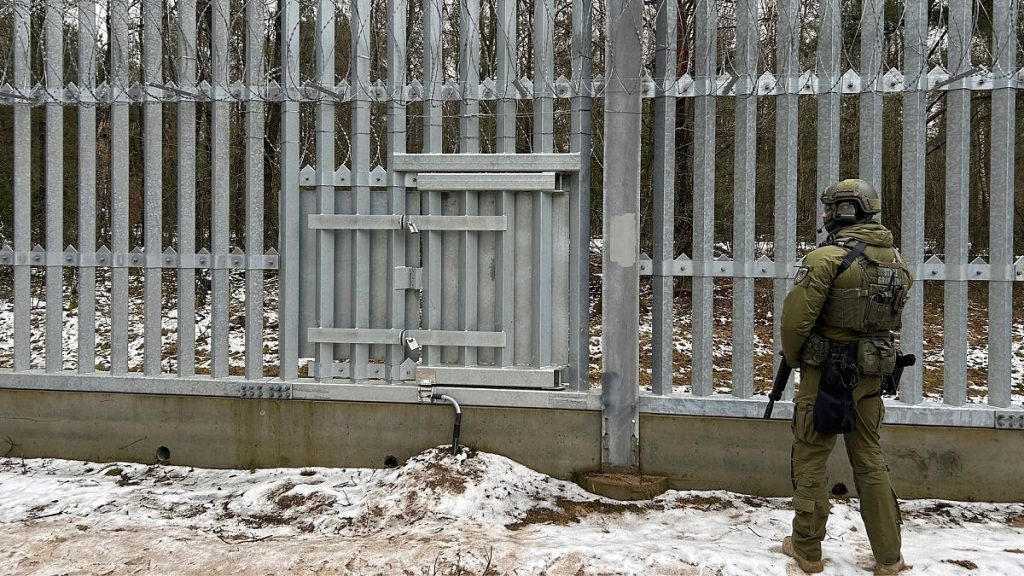Poland’s stance on border security, particularly along its border with Belarus, has become a focal point of the European Union’s migration and security debate. The Polish government, led by Prime Minister Donald Tusk, argues that stringent measures are necessary to counteract what it perceives as weaponized migration orchestrated by Belarus and Russia. This approach involves deploying substantial military personnel and advanced surveillance technology along the border, implementing stricter visa policies, and suspending asylum rights in cases of perceived mass crossings organized by Belarus and Russia. Poland’s position is underpinned by the belief that these measures are vital not only for its own national security but also for the stability of the wider European Union. This firm stance aligns with Poland’s broader objective of enhancing European security, a priority it has emphasized during its six-month EU presidency.
The border region between Poland and Belarus has transformed into a heavily militarized zone, with approximately 13,000 border guards and soldiers patrolling the 400-kilometer frontier. The landscape is dotted with concrete obstacles, concertina wire, and a formidable five-and-a-half-meter steel barrier, starkly illustrating the divide between the two countries. Constant surveillance is maintained through drones, helicopters, and armored vehicles, bolstering Poland’s efforts to deter unauthorized crossings. This robust security presence, according to Polish authorities, aims to prevent groups of migrants, primarily from Africa and the Middle East, from entering the country illegally and potentially destabilizing Poland and the EU. The Polish government highlights the substantial number of attempted border crossings – nearly 30,000 last year – as evidence of the ongoing threat.
Poland alleges that these migrants, often from countries like Ethiopia, Eritrea, and Somalia, enter Belarus on tourist or student visas and are then facilitated across the border for significant sums of money, reportedly between $8,000 and $12,000. The government accuses Belarusian security services and other “organizers,” including Ukrainians struggling financially after fleeing the war, of being complicit in this process. Border guards report frequent confrontations with migrants attempting to cross, including assaults involving slingshots, explosives, rocks, and pepper spray. These clashes, according to Polish officials, underscore the increasingly aggressive and organized nature of the attempted crossings and further justify the need for strong border security measures.
However, humanitarian organizations and NGOs offer a starkly different perspective on the situation at the Poland-Belarus border, raising serious concerns about the human cost of Poland’s policies. These organizations describe the border region as “Europe’s death zone,” pointing to instances of violence, pushbacks, and dire humanitarian conditions faced by migrants stranded in the inhospitable terrain. Doctors Without Borders reports treating hundreds of individuals suffering from exhaustion, hypothermia, dehydration, psychological distress, and physical injuries, including bruises and dog bites. The Norwegian Refugee Council has documented thousands of alleged “violent pushbacks” since 2021, further highlighting the precarious situation faced by asylum seekers. These organizations argue that Poland’s policies are endangering vulnerable individuals and violating international humanitarian and asylum laws.
The contrasting narratives between the Polish government and humanitarian organizations underscore the complex and contentious nature of the situation. Poland maintains that its border security measures are legal and necessary, emphasizing that asylum applications should be submitted at designated border points. The government rejects allegations of illegal pushbacks, insisting that its “turnbacks” comply with legal requirements. Furthermore, Poland has proposed legislation that would empower the government to close the border for extended periods if it believes migration is being used as a political weapon. This proposed law, coupled with the existing stringent policies, has amplified concerns among humanitarian groups who fear further restrictions on access to asylum and increased risks for migrants.
The debate surrounding Poland’s border security measures is taking place against a backdrop of rising nationalism and a shift to the right within the European political landscape. Poland’s firm stance on migration resonates with growing anti-immigrant sentiment in several EU member states, and Poland’s actions have garnered support from other Eastern European countries facing similar challenges. Prime Minister Tusk, facing a crucial presidential election, has framed strong border control as a “sacred duty” and a necessary measure to prevent radical and extremist groups from exploiting the migration issue. This rhetoric reflects the broader political climate in Europe, where migration has become a highly politicized issue, and governments are under increasing pressure to address public concerns about border security and irregular migration.














